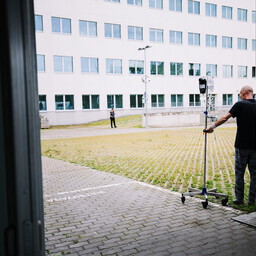Frailty means that a person has little strength. Frail people are weak. The impact of frailty was studied at the University of Tartu.
Some 80-year-olds are healthy, but young people can be frail. Every fifth person over 65 in the world is frail. There is more frailty in Eastern Europe than in Western Europe.
Researcher Karl-Gunnar Isand looked at 1800 patients who underwent major abdominal surgery. Frailer patients had worse outcomes.
After the surgery, mortality was observed within 30 days and six months. Frailer patients had higher mortality. They stayed in the hospital longer and needed more help.
After six months, frailer patients needed more nursing care. Patients want to live at home and be independent.
A healthy lifestyle reduces frailty. Healthy eating, exercise, and good relationships help. There is more frailty in countries with less money and education.
The study of frailty began in geriatrics. Frailty is not always due to age. Frailty can be reduced before surgery.

